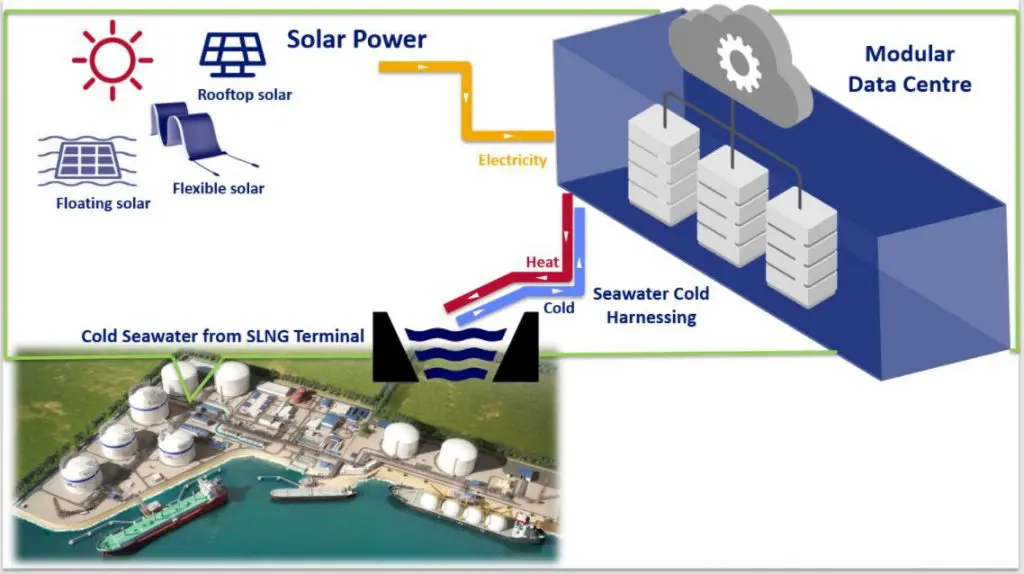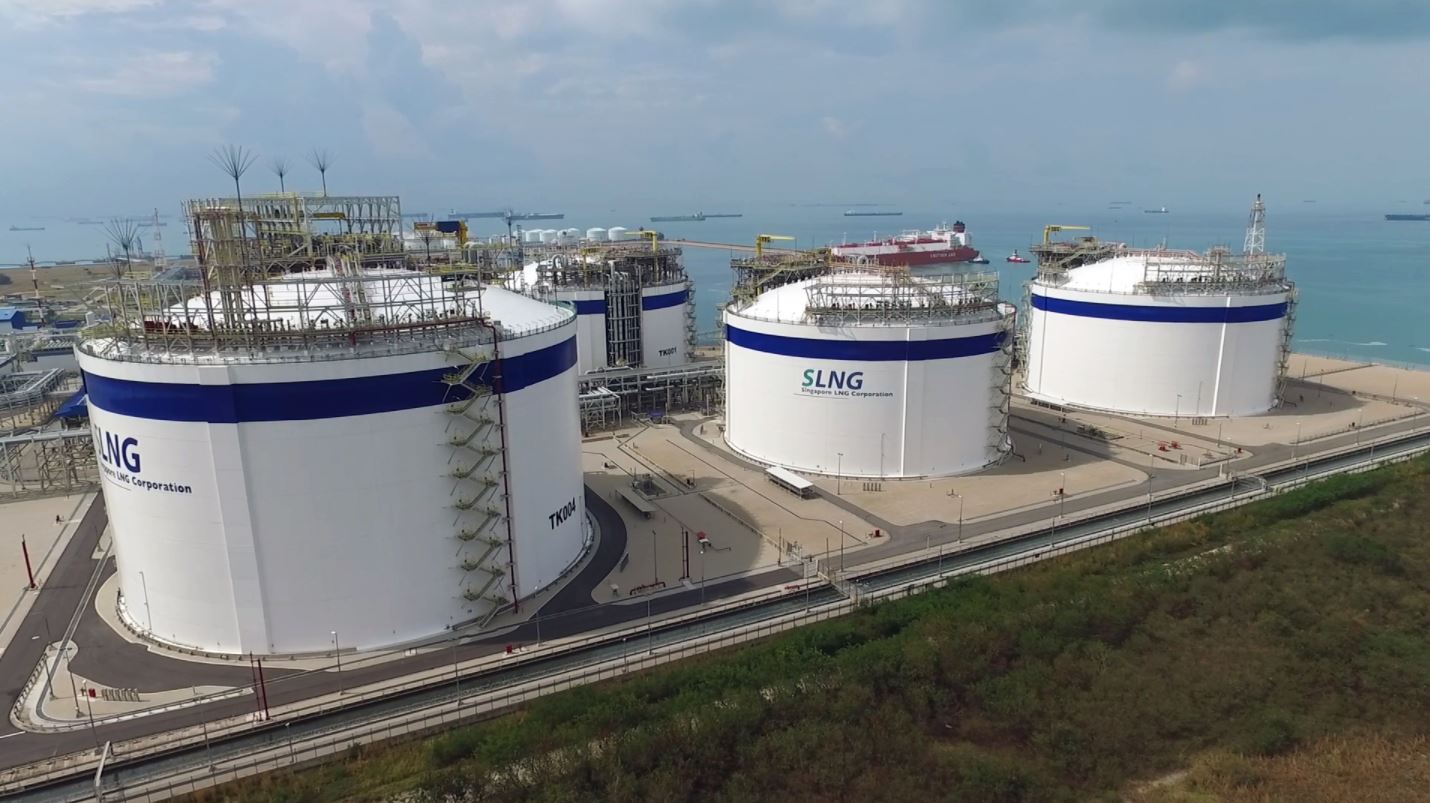Singapore LNG and local partners have signed a memorandum of understanding to explore the development of a green modular data centre system.
The operator of the country’s only LNG import terminal on Jurong Island said in a statement on Tuesday it joined forces with the National Supercomputing Centre (NSCC) Singapore, the National University of Singapore (NUS) and Surbana Jurong (SJ).
If proven feasible, the data centre would be the first-of-its-kind in Singapore, the statement said.
Moreover, the collaboration is in line with the global search for “sustainable solutions to meet the growing demands for data centre rack space, as Singapore accelerates its digital transformation.”
Solar energy, hydrogen
The partners plan to install approximately one Petaflop of NSCC’s supercomputer at the LNG terminal on Jurong Island, and use the plant’s stable and continuous chilled seawater supply to reduce the heat generated.
The chilled seawater is discharged as part of the terminal’s LNG regasification process that ensures a steady send-out of natural gas for the country’s power generation needs.
The project would also explore powering the prototype system with renewable solar energy or green power backup using hydrogen fuel cell, instead of a diesel power generation set, the statement said.
Saving power and reducing emissions
If the concept proves successful, the system has the potential to save 0.2 MW of power, roughly equivalent to a carbon footprint reduction of 700 tonnes per year, or carbon sequestered by around 11,575 tree seedlings planted and grown over 10 years, according to the statement.

The proposed design will make use of pre-fabricated, standard-sized containers to house the supercomputer, which will allow for a faster set up and installation, as compared to traditional data centre buildings.
Furhermore, it will form part of the national research infrastructure that supports local research institutes, institutes of higher learning, and companies by providing the high-performance computing resources needed in various research fields, the statement said.
Examples of these research fields include weather and climate monitoring, genomics, engineering, offshore and marine, urban planning and biomedical science, among others, it said.
“SLNG is happy to have this opportunity to work with like-minded partners to explore, and possibly define, new solutions for the larger LNG eco-system, such as this POV for a green modular data centre system, that will help further promote environmental sustainability,” Tan Soo Koong, CEO of SLNG, said.
“While SLNG remains committed to fulfilling and even exceeding our energy security mandate, we are also keen to do our part, especially where we can leverage on our LNG expertise and terminal infrastructure, to help catalyse new possibilities for a more sustainable energy future,” he said.

